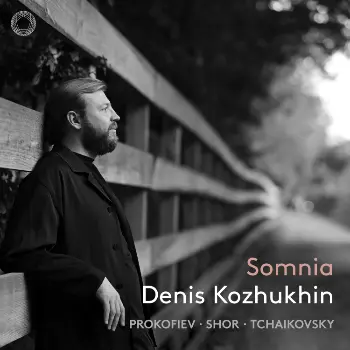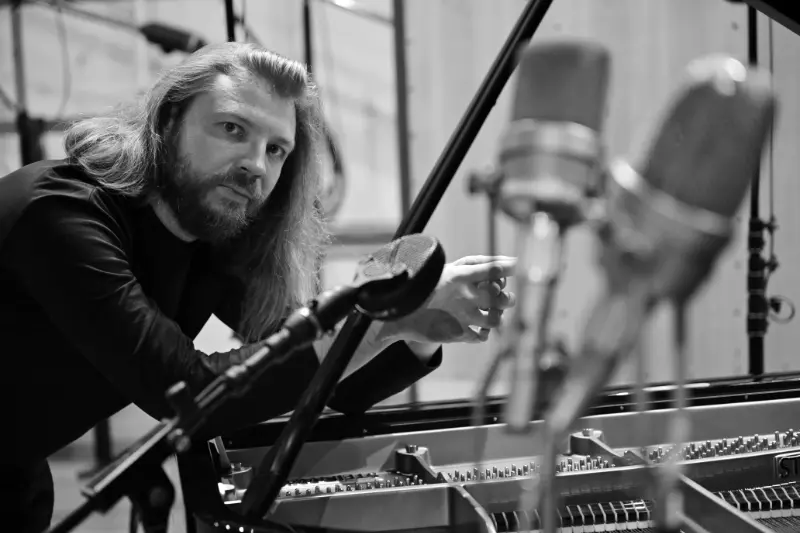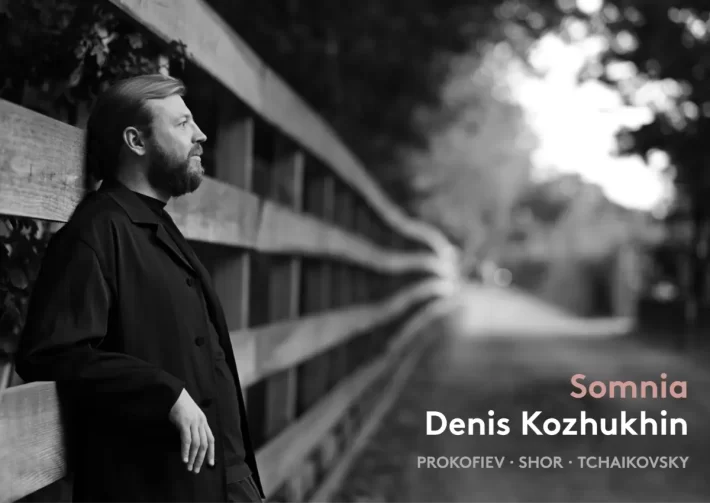Denis Kozhukhin’s Somnia was born out of his desire to explore the theme of childhood. He revisits Tchaikovsky’s Children’s Album, which he performed at his first official recital. Prokofiev’s Music for Children also aligns closely with this central concept, although Kozhukhin finds its title tinged with irony, given the music’s underlying complexity. The third work, contemporary composer Alexey Shor’s Piano Sonata, is described by the pianist as a reflection on life’s journey.

Morning (track 1) from the Prokofiev opens the program in fine fashion. Kozhukhin’s exquisite tone is immediately evident—round and rich, yet supple enough to vividly capture the promise of a new day. The Promenade (track 2) skips along with a suitably nonchalant air. However, Kozhukhin’s attentive sensitivity to unexpected color changes is anything but casual. Several moments illustrate his ability to shape subtle dynamic gradients, effectively highlighting the music’s intriguing nuances.
What makes this set deceptively tricky is its apparent simplicity. Many of the pieces are characterized by sparse textures and minimal polyphony, a far cry from sonatas or concertos. The challenge is to make the most of these lines without overstatement. One of the most minimalist pieces, A Little Story (track 3), finds Kozhukhin striking a balanced narrative tone—lightly melancholic, yet rooted in a child’s perspective.
Prokofiev’s signature quirkiness and sardonic humor are also present. Although The Rain and the Rainbow (track 8) seems to depict a straightforward image, the music suggests something more off-kilter and even sinister, particularly in its “rain” passages. Kozhukhin handles the dissonant clusters with a sense of foreboding. In Evening (track 11), he creates an effective contrast between the gossamer melody and the discordant element that appears determined to disturb the peace.
Each vignette in Tchaikovsky’s Children’s Album, Op. 39 offers a glimpse into a doll’s imagined world. As in the Prokofiev, Kozhukhin plays with sincerity and immediacy. Highlights include the anticipatory playfulness of Hobby Horse (track 18), the warmth of Mama (track 19), and the precise, martial character of The Wooden Soldiers (track 20), shaped with careful voicing and an ear for inner detail.
A sense of tragedy emerges late in the cycle, with the doll’s illness and eventual death. Kozhukhin conveys this through a child’s lens—aware of sorrow, if not fully understanding its weight. There’s a quiet tension in The Sick Doll (track 6), while The Doll’s Funeral (track 7) introduces a darker tone. Its spare severity brings to mind Chopin’s Marche Funèbre. The mood lifts toward the end: Lark Song (track 37) closes the album with delicate charm and bird-like trills.

Denis Kozhukhin (image: © Sasha Gusov)
Shor’s Sonata brings greater complexity and expressive range. His musical language is neither strictly tonal nor academic, resulting in a direct, accessible style. Kozhukhin brings lightness to the Moderato (track 13) through crisp articulation and fleet gestures. Despite its virtuosity, the performance retains a sense of innocence.
The Adagio con grazia (track 14) shares kinship with Prokofiev in its texture and harmonic palette—lyrical at times, but flecked with dissonance. Kozhukhin restores calm when returning to consonance, making these moments reassuring. The Molto allegro (track 15) is alert and energetic, though it could benefit from more drive in the left-hand figuration and greater intensity in the middle sections.
As always, Pentatone’s booklet is well produced. The pianist’s foreword and Phillip Ross Bullock’s notes are concise, informative, and a helpful companion to the program. Excellent recording and instrument, too.

Album Details |
|
|---|---|
| Album name | Somnia |
| Label | Pentatone |
| Catalogue No. | 5187406 |
| Artists | Denis Kozhukhin |



















